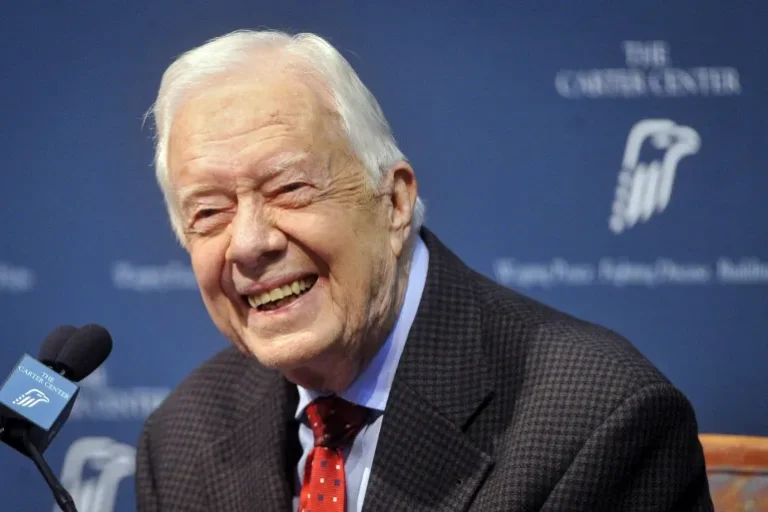Jimmy Carter, the 39th president of the United States and 2002 Nobel Peace Prize winner, passed away peacefully at his home in Plains, Georgia, on Sunday, December 29, at the age of 100. He was surrounded by his family at the time of his death, making him the longest-lived president in U.S. history. Carter is survived by his children — Jack, Chip, Jeff, and Amy, along with 11 grandchildren and 14 great-grandchildren. He was preceded in death by his wife, Rosalynn, and one grandchild.
Chip Carter, his son, expressed that his father was a hero not only to him but to everyone who valued peace, human rights, and selfless love. He added that he and his siblings shared their father with the world through these common beliefs and that Carter’s ability to bring people together made the world their family. Chip thanked everyone for honoring his father’s memory by continuing to uphold these values.
About Jimmy Carter
James Earl “Jimmy” Carter was born on October 1, 1924, in Plains, Georgia. Raised in a family devoted to peanut farming, politics, and the Baptist faith, Carter graduated from the Naval Academy in 1946 and married Rosalynn Smith. After seven years in the Navy, he returned to Georgia and entered state politics in 1962, eventually becoming Governor of Georgia in 1970. As governor, he focused on environmental issues, government efficiency, and racial equality.
In 1974, Carter announced his candidacy for the presidency, securing the Democratic nomination and defeating President Gerald Ford in the 1976 election. During his presidency, Carter worked to reduce inflation, lower unemployment, and create nearly eight million jobs. He addressed the energy crisis by establishing a national energy policy and improving government efficiency. Carter also expanded the national park system and created the Department of Education.
In foreign affairs, Carter emphasized human rights, though his stance was met with resistance from the Soviet Union. His significant achievement was the 1978 Camp David Accords, which fostered peace between Egypt and Israel. He also established full diplomatic relations with China and negotiated the SALT II nuclear arms treaty with the Soviet Union.
Carter faced challenges, including the Soviet invasion of Afghanistan and the Iran hostage crisis, which dominated the final year of his presidency. These events, along with economic issues, contributed to his defeat in the 1980 election. Despite this, Carter continued negotiating the release of the hostages, who were freed the day he left office.




